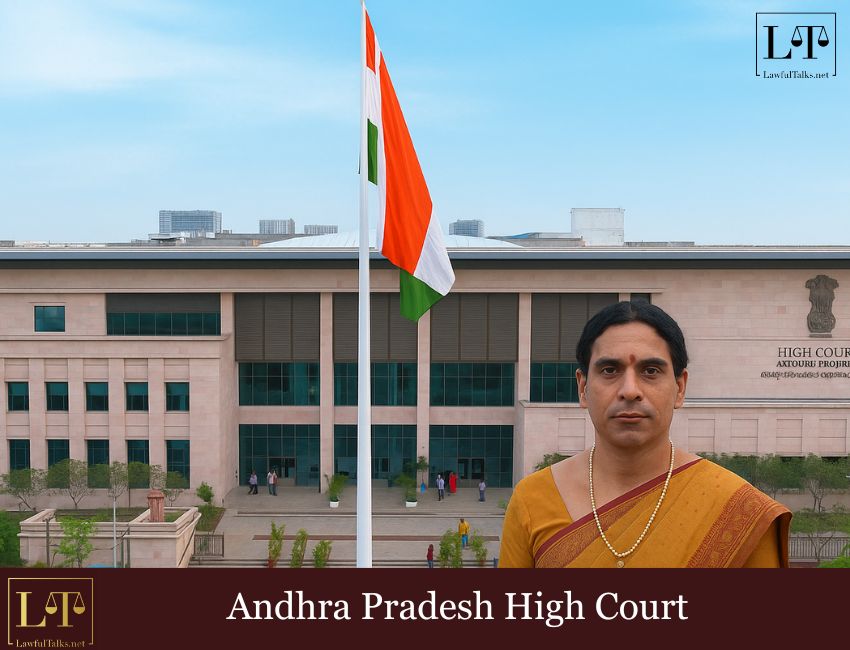Allahabad HC Sets Aside Afzal Ansari's Conviction, Allows Him to Continue as MP

A transwoman in a heterosexual marriage will now have the legal right to file a complaint under Section 498A of Indian Penal Code (IPC) after Andhra Pradesh High Court’s affirmation in a significant ruling. Charges against the man and his family in the case were based on a complaint filed by the man’s spouse, a transwoman who had transitioned from male to female. The premise of the petitioners’ was that the complainant was not entitled to marital protections since she does not meet the criteria of being legally recognized as a ‘woman’ under the said provision.

Justice Venkata Jyothirmai Pratapa, presiding over the matter, dismissed the petition filed by the man and his family seeking the quashing of charges under Section 498A IPC, which deals with cruelty by a husband or his relatives towards a woman and Section 4 of the Dowry Prohibition Act.. The case in question is titled Viswanathan Krishna Murthy vs The State of Andhra Pradesh and Another.
CASE DETAILS
The petitioners argued that the complainant, being a trans woman, could not be classified as a ‘woman’ under the law and thus was not eligible to invoke Section 498A IPC. They claimed that since she could not biologically reproduce, she did not meet the criteria for being legally recognized as a “woman” under the said provision.
Rejecting this view, the judge emphasized that reducing the definition of a woman based purely on reproductive ability—was both constitutionally and legally unreasonable. “To deny a trans woman the status of a 'woman' for the purpose of legal protection under Section 498A IPC solely on the ground of her reproductive capacity is to perpetuate discrimination.”
The court justified that the argument of the petitioners was both discriminatory and contradicted the constitutional guarantees under Articles 14, 15, and 21 of the Constitution.
Supreme Court Ruling in Supriyo v. Union of India
Relying on a precedent to bolster its reasoning the High Court referred to the recent Supreme Court judgment in Supriyo v. Union of India, where though same-sex marriages were not legally recognized, the Apex court had directed the Union Government to form a high-level committee to examine rights for queer couples in areas such as healthcare, succession, adoption, and pensions.
The Court highlighted that even in that case, the Supreme Court had clarified that transgender individuals in heterosexual relationships retain the right to marry under the existing legal framework—contradicting the petitioners' contention that the complainant was not entitled to marital protections.
FACTS AND FINAL RULING
Upon reviewing the facts, the High Court noted that the accused husband was fully aware that the complainant was a trans woman. They had lived together and subsequently married in a ceremony conducted at an Arya Samaj Mandir.
The Court, however, did not find enough material in the complaint to support allegations of cruelty. The primary accusation was that the husband left her and later threatened her through a message. Apart from claims of dowry being given by the complainant’s parents, the Court found no substantial evidence of harassment or abuse.
ORDER
As a result, the Court quashed the criminal proceedings pending before the II Additional Munsif Magistrate, Ongole, which included charges under Section 498A read with Section 34 IPC (common intention) and Section 4 of the Dowry Prohibition Act.
CASE TITLE: Viswanathan Krishna Murthy vs The State of Andhra Pradesh and Another.
ADVOCATES FOR PETITIONERS: Advocate Thandava Yogesh
FOR THE STATE: Assistant Public Prosecutor K. Priyanka Lakshmi.

Shalini Chavan
Advocate, Bombay High Court
Latest Posts
Categories
- International News 19 Posts
- Supreme Court 390 Posts
- High Courts 383 Posts



















































































































































































































































































































































































































































































































































































































































































































































































































